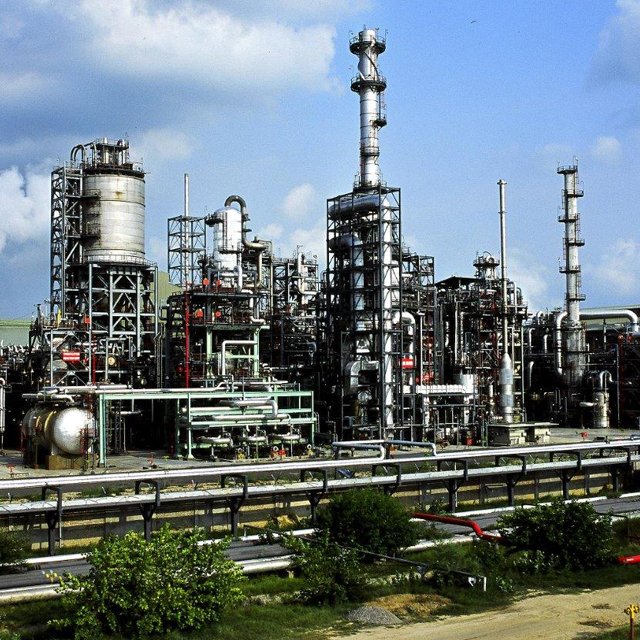NEW DELHI: Crazy does not even begin to describe the state of the global oil market. Just days after the ‘oil war’ between Saudi Arabia and Russia was resolved with a deal between Opec Plus nations agreeing to production cuts, alarm bells rang again as the US shale oil market crashed with West Texas Intermediate (WTI) – one of the three international benchmarks by which oil prices are determined – showed that US oil prices had crashed to $-40 a barrel – a first in its history. What this meant was that US oil producers actually paid buyers $40 a barrel, to take the surplus oil off their hands.
The result: the US shale oil market went into freefall and there were worries about the ripple effect on the global oil market and other economies, specifically the Indian economy.
Energy analyst Narendra Taneja was quick to allay concerns. “We should look upon it as an episode that happened. This does not mean that it might not happen again but as of now, we should take it as a blip. We should look at Brent which is stable and trading at $20-25 a barrel. The Indian market is still based on Brent.”
Good News For India
Moving away from the blip, we need to see what low oil prices mean for the Indian economy. In the immediate term, India will enjoy a lower current account deficit (CAD) and lower inflation because of lower oil prices. This would mean that the country’s import bill reduces and the price of medical equipment and fertilizer, both key for the country’s economy, will become cheaper. Lower import costs also impact farmers who use diesel to run farm equipment.
Move To Cleaner Fuels
Given that low oil prices are here to stay, what could be the long-term outlook for the Indian economy? Analysts advise that due to the global pandemic oil prices at $25-30 per barrel is likely to be the new normal for now. There are some key takeaways in the medium to long term: First, the fall in oil prices is likely to lead to a fall in Liquefied Natural Gas (LNG) as both are close substitutes for one another. This is important as LNG could then become a substitute for coal. India is a heavily coal-dependent coal market as of now and the carbon monoxide released by gas is less than half of coal.
The other fallout is that the crash in oil prices could free up revenue that India needs to ramp up renewable energy sources. An economic survey presented in Parliament in July last year, stated the country would need $330 billion to raise its renewable energy capacity to 500GW or 40 percent of total energy capacity by 2030.
Flip Side
While the overall fall in oil prices is good news for India’s economy there is a flip side. India earns considerable revenue from excise duty. An India Today report quoting Madan Sabnavis, chief economist of Care Ratings, estimated that governments get around Rs 5.5 lakh crore as revenue in the form of duties and taxes on fuel every year. Of this, the Centre gets around Rs 3 lakh crore, and the states, Rs 2.5 lakh crore.
Such a figure is hit if oil prices are low. The government could in normal times make this up by hiking excise duty, but since demand has dropped due to the pandemic this is unlikely to be the case now. As a result, key government projects are likely to be hit. The ideal price for India, says analysts, should be in the region of $40 a barrel, but that is unlikely to be there for some time.
Big Hit To Exports
The other big hit will be petroleum products. India is a major exporter of petroleum products and refined petrol is one of the country’s top three exports. So reasonably high oil prices are a win-win situation for all. Currently, with oil demand down both worldwide and in India, the government is expected to fall well short of the 2.4 trillion rupee target slated for 2020-2021.
This will hurt India as a major source of exports will dry up. This will hit major oil downstream companies. Already, IOC has filed a force majeure, which is an inability to fulfil a contract, on oil purchases from Saudi Arabia and UAE. This will be a big blow.
Geopolitical Factor
There is also a geopolitical component to all this. As Taneja points out, low oil prices are not good for the GCC countries and even Iran, something India needs to remain conscious of.
“There are eight million-plus people living in the GCC countries. The low oil prices will hurt them badly if they go on like this for another three or four months and there is a danger of economic and possibly political instability. This will hurt India because the GCC along with Iran is a major market for us.”
Normalcy On The Horizon?
Despite the despondency surrounding the lack of global demand for oil, most analysts feel that India is in a better place than most countries to take advantage, once the recovery should happen. Analysts say that India’s sound fundamentals in terms of food supply chains and better management of the COVID-19 crisis than most other nations, has ensured confidence. This confidence could be seen in a recent IMF report which projected India’s growth rate at 1.9 percent while global growth was likely to fall to -3 percent in 2020.
The other point to note is that while oil is the first to be hit in a global recession it is also the first to recover. “If there is even a slight recovery oil is the first beneficiary because without oil nothing moves. The coming month will be crucial for us, but I do see India bouncing back quicker than other countries,” says Taneja.
















